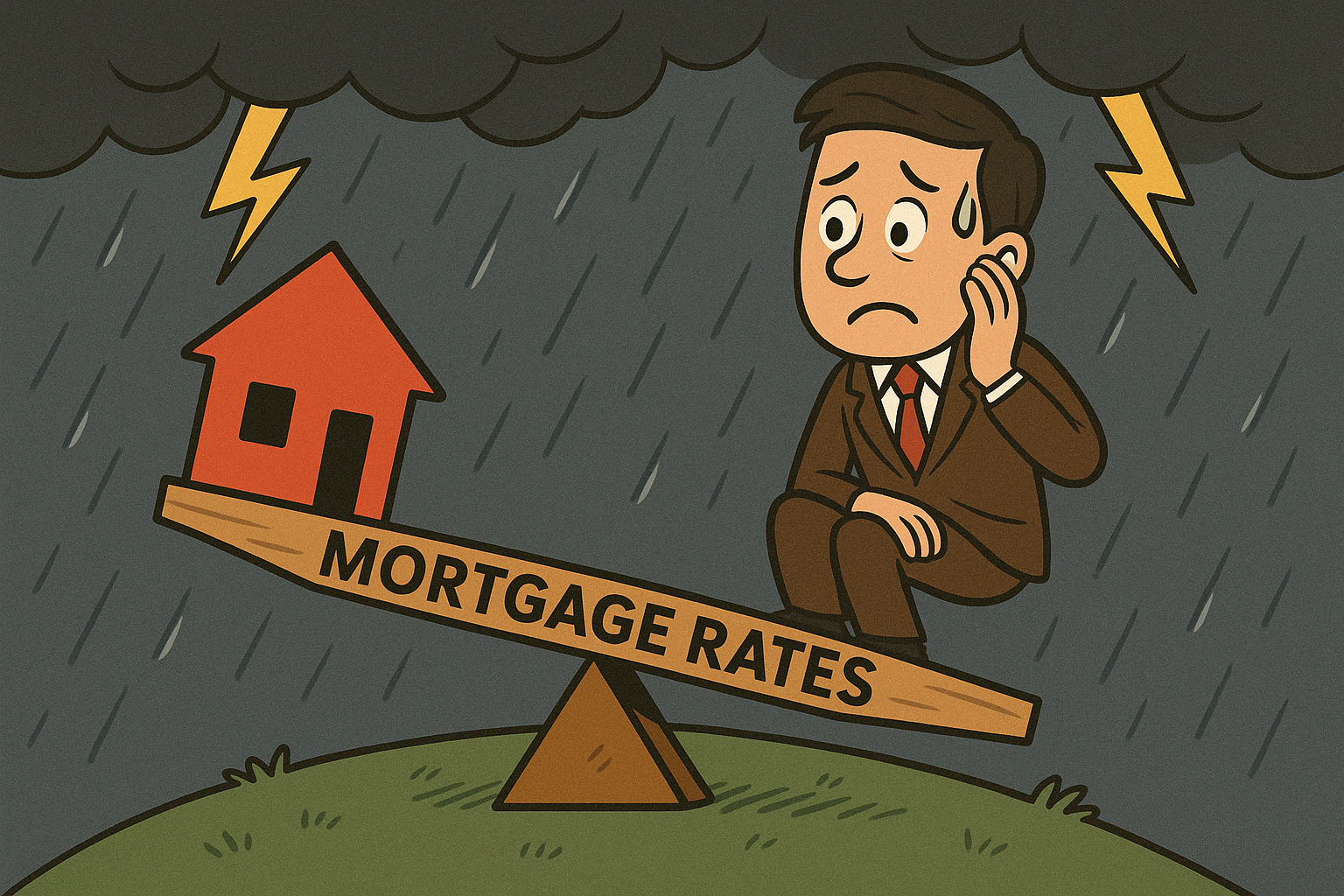A settlement reached this week threatens to strike a blow to a longtime customary of residential actual property: the 6 p.c gross sales fee. It additionally will change who pays it. The deal, reached after a yearslong courtroom battle initially introduced by a bunch of dwelling sellers in Missouri, requires the highly effective Nationwide Affiliation of Realtors, which has lengthy regulated the best way U.S. houses are bought, to amend its guidelines on how Realtors for sellers and patrons are compensated.
In most actual property transactions in the US, each the vendor and purchaser have an agent representing them. For many years, there’s been a regular for paying these brokers: a fee of between 5 and 6 p.c of the house’s sale value, coated by the vendor and cut up between the 2 brokers.
Fee charges are considerably decrease in lots of different nations. In Britain, they’re simply above 1 p.c, whereas in Singapore, the Netherlands and Denmark, they hover between 2 and three p.c, in response to a research by the funding agency Keefe, Bruyette & Woods. The householders who sued in federal courtroom in Missouri stated that N.A.R., by its guidelines on agent compensation, conspired to artificially inflate the commissions paid to actual property brokers.
Now these guidelines are set to vary as early as July, pending courtroom approval of the settlement that features N.A.R.’s settlement to pay $418 million in damages.
There might be extra room for negotiation.
Actual property brokers argue that commissions have lengthy been negotiable, and the usual 5 to six p.c is observe reasonably than principle.
However an N.A.R. rule that required vendor brokers to obviously promote compensation to patrons’ brokers — successfully setting compensation for the customer’s agent — stifled competitors, the lawsuits argued. It additionally led to a observe referred to as “steering,” wherein purchaser brokers direct their purchasers to costlier houses the place the brokers stand to earn a bigger fee.
Beneath the phrases of the settlement, itemizing brokers will not be capable of promote fee charges to patrons’ brokers on many of the databases the place houses are listed on the market.
That can enable for extra negotiation.
When Joanne Y. Cleaver determined to promote her five-bedroom dwelling in Mint Hill, N.C., a suburb of Charlotte, in December, she knew a settlement was most likely within the pipeline. Ms. Cleaver, a former actual property editor of the Milwaukee Journal Sentinel, interviewed a number of brokers to see if she might get them to scale back their charge, and succeeded in getting her personal agent to drop the charge from 2.5 to 1.5 p.c. However the course of floor to a halt when she tried to get the fee paid to the customer’s agent diminished from 2.5 to 2 p.c.
Agent after agent instructed her that if the proportion have been diminished, patrons’ brokers would steer their purchasers away from her dwelling. “They laughed at me,” stated Ms. Cleaver, who revealed the Kindle guide “Negotiate Actual Property Commissions and Maintain Extra Cash!” and started a Fb group the place patrons and sellers can swap negotiation ways.
Patrons can be anticipated to pay their very own brokers.
On the coronary heart of the proposed rule adjustments is fee “decoupling” — patrons and sellers would now every be liable for paying their very own brokers reasonably than making sellers cowl charges for each.
For patrons, particularly these already struggling to amass a down fee for a house, this might sting.
“Most entry and decrease finish patrons BARELY can provide you with 3 p.c down,” one dealer, Stephen O’Hara, chief govt of Widespread Floor Properties in Rancho Santa Margarita, California, wrote on a Fb dialogue thread. “They don’t find the money for for a can of paint, a lot much less a $20k Fee.”
The excellent news is that these commissions could go down. Most purchaser brokers presently earn 2.5 to three p.c on a house sale (half of the usual 6 p.c fee). An overhaul of the system might spark extra competitors, with brokers providing decrease charges, stated Ryan Tomasello, the managing director of Keefe, Bruyette & Woods, an funding banking agency and the creator of a 77-page research of the impression of the adjustments on commissions.
Mr. Tomasello’s analysis predicts that commissions could fall by as a lot as 2 p.c — largely from the customer’s facet, he stated. On the identical time, he doesn’t consider that dwelling costs shall be affected. “We expect in the end that this can scale back commissions in combination and subsequently the friction prices of one in every of life’s greatest transactions,” he stated.
Patrons additionally at the moment are extra more likely to be provided a written settlement with their agent, similar to sellers.
Commissions might develop into extra clear.
Regardless of N.A.R. steering in opposition to the observe, many purchaser brokers promote their providers as free. However in actual property and in life, nothing comes free — many dwelling patrons merely weren’t conscious that the charge for his or her brokers was coated by the vendor.
Sellers have been usually unaware, too. A current survey of 1,000 Individuals discovered that 42 p.c of dwelling sellers didn’t know that they have been anticipated to pay the fee for the customer’s agent. The 5 dwelling sellers in Missouri who introduced the lawsuit in opposition to N.A.R. had the identical grievance.
“At this time’s shoppers view the current fee system as complicated and unfair, which has made it troublesome for a lot of to belief their actual property agent,” Luke Babich, the co-founder of the actual property schooling platform Intelligent Actual Property, which performed the ballot, wrote in a weblog submit.
One potential upshot of the deal is that dwelling patrons will develop into extra conscious of the method, and of the mechanism by which the agent representing them is paid.
Some patrons might decide to go it alone.
At this time, 85 to 90 p.c of dwelling patrons use an agent who completely represents them whereas searching for a house, in response to Keefe, Bruyette & Woods. Confronted with the prospect of footing the invoice for their very own brokers, some patrons — already counting on websites like Zillow and Redfin to seek for listings on their very own — could now decide to eschew a purchaser’s agent totally.
However purchaser beware: Brokers warning that those that go it alone usually tend to fall sufferer to fraud or misunderstand the method.
Even brokers who aren’t members of N.A.R. could also be affected.
In most cities, entry to the databases the place houses are listed on the market, referred to as a number of itemizing providers, is restricted to dues-paying N.A.R. members, which has helped cement the group’s affect. However this isn’t the case in each metropolis, together with New York, the place many brokers carry membership solely with the Actual Property Board of New York, generally known as REBNY, the native actual property commerce affiliation.
Some main brokerages have already provided their brokers an exit ramp from N.A.R. As lawsuits in opposition to the group piled up final 12 months, a number of actual property firms, together with Re/Max and Redfin, did away with a requirement that their brokers maintain N.A.R. membership.
In New York Metropolis, the place most brokers aren’t members of N.A.R., the settlement received’t instantly have an effect on most patrons and sellers. Not but anyway: The adjustments are anticipated to ripple by your entire trade. In January, REBNY outlined new guidelines permitting patrons’ brokers to reject a vendor’s provide of fee and negotiate the charge instantly from the customer.









